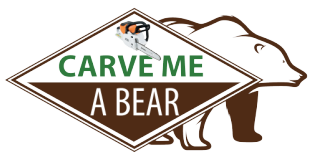The question, “What’s in a name?” has long been pondered, famously by Shakespeare himself. The significance of a name extends beyond mere words. Etymology, the study of the origin and meaning of names, affirms this notion. When it comes to naming their children, people often deliberate for various reasons. Some choose a name based on its meaning, others name their child after someone significant in their lives, and a few opt for a name simply because they like its sound or visual appeal, even playing with unconventional spellings. However, the story behind last names is different.
Patriarchy Etymology; Rule of the Father
In many cultures, the tradition dictates that males pass down their last name to the next generation. Additionally, women marrying into a family often adopt their husband’s last name, adhering to cultural practices. Understanding the basics of etymology can shed light on this topic. It took several centuries for the majority of Europeans to adopt last names, and by the 12th century, it became more common across the continent. Last names were introduced to provide people with greater distinction, especially considering that by the 13th century, a significant portion of the population shared common first names like William, John, and Richard. Last names initially began with a patronymic structure, such as “William son of Andrew.” However, surnames expanded to include locations, personal characteristics, and occupations.
Locational Last Names
Location-based surnames emerged in various parts of the world. People would adopt a surname based on their place of birth or residence. For example, if John was born in New York, his surname might be “John of York” or simply “John York.” Additionally, some cultures used landmarks or geographical features as surnames, like Woods, Fields, or Brooks.
Descriptive, Good Character Surnames
Personal characteristics also influenced the adoption of surnames. Specific traits such as weight, height, or hair color could become surnames. For instance, someone with red hair might be known as “John Red.” Different languages and cultures produced various surname variations, such as Rousseau in French, Roth in German, Flynn in Irish, Rossi in Italian, Reid in English, and Cerveny in Czech.
Surnames derived from personality traits, such as speed, slowness, intelligence, or foolishness, also evolved over time. Furthermore, some individuals were bestowed with surnames based on animal characteristics. For example, William, known for his swimming prowess, might be called “William Fish.”
Occupation-based surnames were prevalent in past centuries.
Profession of an Ancestor
Many people adopted a surname based on their profession. Common Old English surnames included Shepherd, Baker, Taylor, or Fisher. Blacksmiths and metalworkers often carried the surname Smith. Native languages, cultures, and trades from around the world have all contributed to the surnames we recognize today.
Custom Chainsaw Carvings Picked Up or Shipped from Lincoln, Montana & Nampa, Idaho
Tracing one’s lineage and discovering the origins of a surname can be an exciting quest. Uncovering one’s ancestors and understanding the lives they led can be a rewarding experience. Meanwhile, proudly displaying a custom name sign at home is a great way to celebrate one’s surname. Carve Me A Bear Chainsaw Carvings offers personalized name signs, allowing individuals to showcase their surname with pride. Contact us today to order your custom sign and embrace your family heritage.






